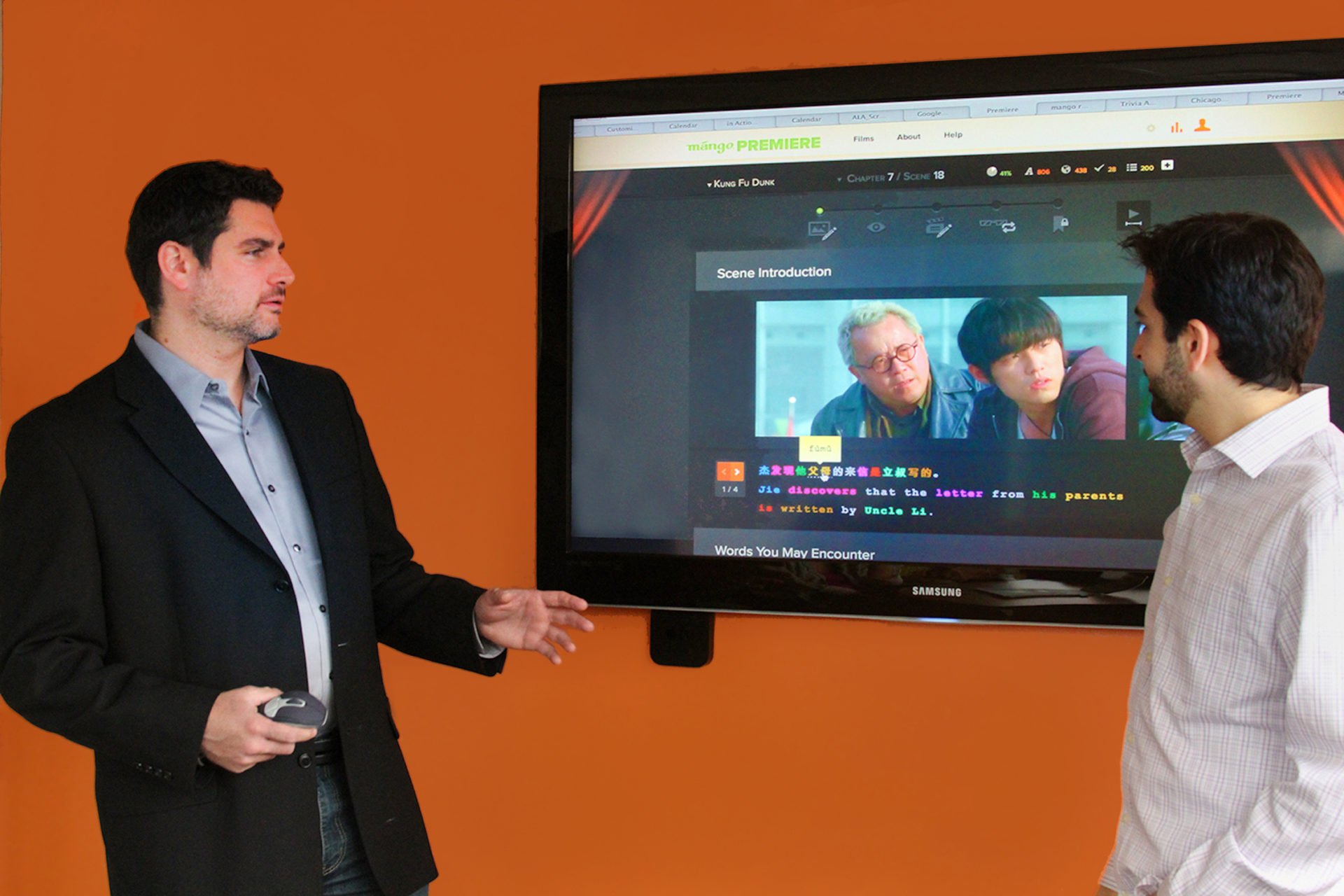
Technology has done much to build bridges globally, but it could do a lot more. Helping us speak other languages is one promising arena, expanding global business through cultural awareness.
Mango Languages aims to teach the grammar, culture, and intuitiveness of languages in a fun, interesting, and engaging way. The company’s conversation-based learning products employ a technique it calls intuitive language construction.
More than 2,700 libraries across the U.S. offer Mango Languages to expose learners to new languages, cultures, and opportunities. And corporate and government adopters are showing how bilingual training is good for business.
“If all you have is English, you have a very small world,” says Mango CEO Jason Teshuba. “But if you have another language, you have a whole other world.” He says the company tailors products to different industries that have unique language needs, including healthcare, government and aerospace.
Mango launched in 2007 with 11 languages, and now teaches 60. (Competitor Rosetta Stone offers 30.) It will have about $6 million in revenue this year, and has about 40 employees. It was named a top-200 fastest-growing private U.S. company in 2012 by Lead411, a data company analyzing more than 1 million companies.
The libraries using Mango are part of a massive shift towards digitized learning. “Libraries get really creative with Mango,” Teshuba says. “It comes as a surprise, because people still view a library as a building you go into to do homework or take out a book, but libraries are very different entities from when we were in school.”
The libraries using Mango are trying to attract new generations of users, expand the definition of learning, and connect and enlighten their communities, he says. For example, the University of Denver offers digital books online and has expanded its digital learning platforms. It brought Mango into the library to help students learn languages for study abroad, to supplement international relations courses, and to better prepare graduates for global business. University librarian Peggy Keeran says the Mango platform is easy to use and easily integrated.
The innovative Chicago Public Library, whose Maker Lab workspace lets community members join in hacking and technology-creation projects, also uses Mango to expand access to global languages.
Mango expects to make a sizable impact with its newest platform, Mango Premiere, which integrates language learning with watching foreign films. The tool offers users a new way to learn languages while gaining perspective on foreign cultures. Teshuba says, “You can get yourself into big trouble learning a new language and not knowing anything about culture.”
With thousands of lines of dialogue in every movie, he says Mango Premiere is packed with linguistic and cultural information. Teshuba sees the new product as a way for the company to innovate within the language education market, while staying true to its intuitive learning philosophy. The company intends to launch its products for 20 movies by year-end and throw film parties in partnership with libraries.
“At the end of the day, language is a way to connect with other human beings,” Teshuba says. “And if that other human being does not know English, then you have to connect with them on their terms.”
Foreign-Language Software Goes to the Library
Technology has done much to build bridges globally, but it could do a lot more. Helping us speak other languages is one promising arena, expanding global business through cultural awareness. Mango Languages aims to teach the grammar, culture, and intuitiveness of languages in a fun, interesting, and engaging way. The company’s conversation-based learning products employ a technique it calls intuitive language construction. More than 2,700 libraries across the U.S. offer Mango Languages to expose learners to new languages, cultures, and opportunities. And corporate and government adopters are showing how bilingual training is good for business.















